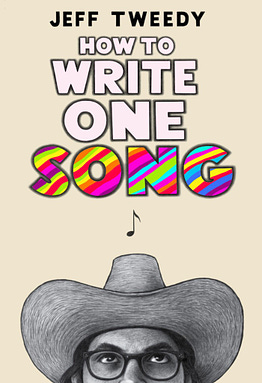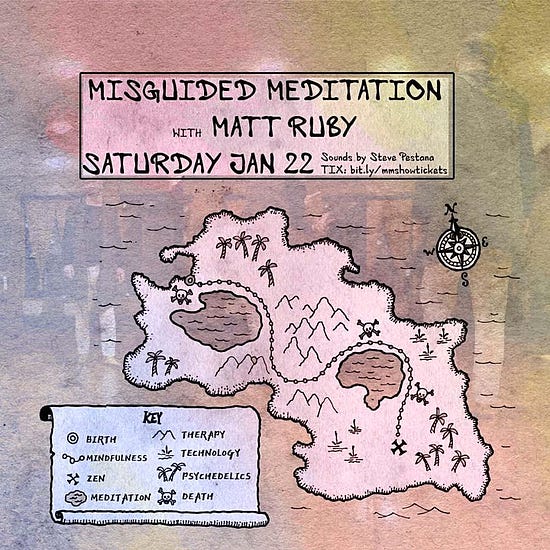Here it is, my annual list of fave paragraphs I read in the past year (click here for last year’s edition).
Clarity caveat: These weren’t all written in the past year, that’s just when I read them. So don’t come at me with a “Yo, Ralph Waldo Emerson dropped some new content this year!?” comment. (Actually, there’s probably some Emerson NFT that did drop in 2021 so that might be a bad example.) Moving on…
How I compile this: I do a lot of reading on Instapaper which lets you highlight passages as you read. I went through all my saved highlights from this year and picked out my favorite paragraphs below (bold emphasis in ’em is mine).
Not included: Things I’ve included in previous Rubesletters and things I read in books (or offline elsewhere) since I can’t copy/paste those (and I’m lazy). That said, this first one’s from a book and I even typed it out so you know it’s gotta be good…
The best paragraph of 2021
Let’s start with my fave paragraph I read this year.
It’s about what great songs and jokes have in common: exposing the truth. It’s from Jeff Tweedy’s (frontman for Wilco) book about how to write one song. Highly recommend the whole thing too, even if you have zero interest in penning a tune; it’s imbued with his philosophy about creativity and it’s really beautiful.
Sharing some truth
How to Write One Song • By Jeff Tweedy
It’s about searching for, finding, and sharing some truth. That’s what I’m looking for in everybody’s music, in every genre–having the truth exposed. A truth always comes out in art. I think comedy finds it, and I think good songwriting finds it. I believe that all art is about this truth, which is almost invisible at most other times, when we’re less aware, locked in the drudgery of our day-to-day existences, until art breaks through and points it out to us. Sometimes I think of it as a search for low-hanging fruit, even though I know that’s not quite the right simile–it’s something people walk by all the time, something so ingrained in our environment that it’s become invisible, something so obvious nobody sees it anymore, but then someone figures out how to say what it is, or how to see it, and everyone else says, “Of course! Why didn’t I say that? That’s exactly right. I always knew that was there,” or “That’s exactly how I feel.” Like when Bill Callahan sings, “Well, I can tell you about the river / Or we could just get in.”
That feels like the description of a perfect observational joke too, one that points out something everyone knows is true yet somehow we’ve never heard expressed before. The result makes people feel good (yeah, laughs!), but it’s also, in a small way, an act of empathy that makes people feel less alone. “Oh good, I’m not the only one who thinks that.”
Moving on, the rest of the entries are split up into categories:
Sex, love, and gender
Technology
Cancel culture and the offended
Politics, race, and the economy
Mindfulness and therapy
Art, music, and creativity
Sex, love, and gender
“I Knew It Was Doomed; I Knew Someone Was Doomed”: Inside Anthony Bourdain’s All-Consuming Relationship
Vanity Fair · Excerpt by David Simon
The new romance — all the places where you’ve shit the bed in life, those get scrubbed clean, and you get to start over and be charming and be charmed by the new person. I experienced Tony going through that with Asia, though I never met her. She was the new person with him, and it was powerful, and it was kid-like, in a way that we’re all kid-like at that moment. Show me an eighty-year-old widower who takes up with a seventy-five-year-old widow at the nursing home in Florida, and he’s going through the same emotions while they play canasta in the community room. That’s just who we are; it’s what long-term relationships are battling all the time. You have familiarity and trust and history and love and shared sense of purpose, but you don’t have new. And the new person, you get to start painting all over again. And so, I saw him in that moment where he was painting all over again with somebody he was in love with.
Nike’s End of Men
houseofstrauss.substack.com · by Ethan Strauss
Nike sold the public this rented masculinity, year after year, and the public bought it, including the many women who found Nike’s pitchmen and products to be charismatic. Michael Jordan was a hypercompetitive alpha male asshole who viciously humiliated not just his opponents, but his teammates as well. The millions who tuned in for the Last Dance documentary found these dark impulses of his to be highly captivating. What the viewers were drawn to in Jordan, what the ensuing memes drew off of, was what Jennifer Lawrence’s character in American Hustle theorized about a good perfume scent: “Historically, the best perfumes in the world, they’re all laced with something nasty.” So yes, masculinity is toxic. And that’s also what people love about it, similar to how they’re addicted to the rotten rinds in cheese. All that striving for greatness is indivisible from the selfish need to inflict cruelty on your dominated foe. Take away the latter and there is no sports. It’s just exercise.
Feminism Still Hasn’t Figured Out P*rn and Desire
The Atlantic · by Helen Lewis
“Now you begin to see the problem with desire,” [the transgender theorist Andrea Long] Chu has written. “We rarely want the things we should.” But how much do culture and politics shape those wants? P*rn-aggregator sites, to take one example, use algorithms, just like the rest of the internet. P*rnhub pushes featured videos and recommendations, optimized to build user loyalty and increase revenue, which carry the implicit message that this is what everyone else finds arousing — that this is the norm. Compare p*rn with polarized journalism, or even fast food: How can we untangle what people “really want” from what they are offered, over and over, and from what everyone else is being offered too? No one’s sexual desires exist in a vacuum, immune to outside pressures driven by capitalism. (Call it the invisible hand job of the market.)
👀 Subscribe 👀
Become a paid subscriber to the Rubesletter and you’ll get exclusive bonus content, support the cause, and keep me off the algorithm/advertising treadmill. You can get 20% off your first year if you sign up now:
Get 20% off for 1 year
Technology
Year Zero: The Age of the Machines Demands Its Own Samizdat
Tablet · by David Samuels
We are all sick with the same disease, which is being pumped through our veins by the agents of a monopolistic oligarchy — whether they present themselves as the owners of large technology companies, or as the professional classes that are dependent on those companies for their declining wealth and status, or as identity politics campaigners, or security bureaucrats. The places where these vectors converge make up the new ideology, which is regulated by machines; the places outside this discourse are figured as threats, and made to disappear from screens and search results, using the same technologies that they use in China…The machines ate us, whether in the form of massive multi-player-role playing games that advertise themselves as a form of politics, or online platforms that stole everyone’s family pictures under the guise of greater social connectedness. The next phase is simple: to find someplace safe, healthy, and reasonably inaccessible and watch the tech monopolies, security bureaucracies, and billionaire organizing networks assemble themselves like Voltron into the exoskeleton of the emerging American techno-surveillance state.
The future of loneliness
The Guardian · by Olivia Laing
Hidden behind a computer screen, the lonely person has control. They can search for company without the danger of being revealed or found wanting. They can reach out or they can hide; they can lurk and they can show themselves, safe from the humiliation of face-to-face rejection. The screen acts as a kind of protective membrane, a scrim that allows invisibility and transformation. You can filter your image, concealing unattractive elements, and you can emerge enhanced: an online avatar designed to attract likes. But now a problem arises, for the contact this produces is not the same thing as intimacy. Curating a perfected self might win followers or Facebook friends, but it will not necessarily cure loneliness, since the cure for loneliness is not being looked at, but being seen and accepted as a whole person — ugly, unhappy and awkward, as well as radiant and selfie-ready.
Young Creators Are Burning Out and Breaking Down
The New York Times · by Taylor Lorenz
Thanks to the app’s algorithmically generated “For You” page, TikTok delivers fame faster than any other platform; it’s possible to amass millions of followers within a matter of weeks. But as quickly as creators rise, they can fall. “It almost feels like I’m getting a taste of celebrity, but it’s never consistent and as soon as you get it, it’s gone and you’re constantly trying to get it back,” said Lauren Stasyna, 22, a TikTok creator in Toronto. “It feels like I’m trying to capture this prize, but I don’t know what the prize even is.”
On the ‘cut-and-paste’ mentality
stareintothelightsmypretties.jore.cc · Excerpt by Susan Greenfield
[Externalising memory through Google] does concern me because let’s take that ad absurdum: If you feel you can look anything up and you don’t have to learn anything, this would mean conversation is going to be pretty clunky because if I normally meet someone of roughly my generation and culture, I will assume they know where Barcelona is and I will assume they know who Napoleon was or who Henry VIII was, I’ll assume they’ll know where New York is. So you can have a conversation — and we all know the delight of having conversations with people where you share a lot of background knowledge that can develop ideas — but imagine having a conversation with someone who knew nothing, who didn’t know who Hitler was, who hadn’t heard of fascism, who had to look it up each time? This would mean that you couldn’t really have a very fluid or interactive conversation, and I know that sounds extreme, but if we are always having recourse to an external source of memory than I think it’s going to have a severe impact on how we interact, how fast we have ideas, and what we do with them, and I think that the younger generation perhaps might be disadvantaged in not having such ready agile processes and have a much more cut-and-paste mentality.
🎟 My Misguided Meditation show returns 🎟
NYC • JAN 22: Misguided Meditation with Matt Ruby: A comedy show about mindfulness. $5 off with code “breathe” here if you act fast.
Cancel culture and the offended
David Sedaris Knows What You’ll Laugh at When No One Is Judging
The New York Times · Excerpt by David Sedaris
You don’t want to make somebody feel bad. You don’t want to belittle somebody. You don’t want to heap stuff on them. But there’s something to be said about developing a thick skin. Like, I wrote an angry email recently to Audm because they were doing a New Yorker story about the making of “Midnight Cowboy.” They quoted John Wayne, who said it was a movie about a couple of bleep. So I wrote to Audm, and I said why did you bleep out the word “fag”? You’re quoting John Wayne in 1969. Of course John Wayne said that. Bleeping out the word is treating me like I’m some sensitive flower.
Mob Justice Is Trampling Democratic Discourse
The Atlantic · by Anne Applebaum
What many of these people — the difficult ones, the gossipy ones, the overly gregarious ones — have in common is that they make people uncomfortable. Here, too, a profound generational shift has transpired. “I think people’s tolerance for discomfort — people’s tolerance for dissonance, for not hearing exactly what they want to hear — has now gone down to zero,” one person told me. “Discomfort used to be a term of praise about pedagogy — I mean, the greatest discomforter of all was Socrates.” The interaction between the angry mob and the illiberal bureaucracy engenders a thirst for blood, for sacrifices to be offered to the pious and unforgiving gods of outrage.
Politics, race, and the economy
What Makes a Cult a Cult?
The New Yorker · by Zoë Heller
Some scholars theorize that levels of religiosity and cultic affiliation tend to rise in proportion to the perceived uncertainty of an environment. The less control we feel we have over our circumstances, the more likely we are to entrust our fates to a higher power. (A classic example of this relationship was provided by the anthropologist Bronisław Malinowski, who found that fishermen in the Trobriand Islands, off the coast of New Guinea, engaged in more magic rituals the farther out to sea they went.) This propensity has been offered as an explanation for why cults proliferated during the social and political tumult of the nineteen-sixties, and why levels of religiosity have remained higher in America than in other industrialized countries. Americans, it is argued, experience significantly more economic precarity than people in nations with stronger social safety nets and consequently are more inclined to seek alternative sources of comfort.
The Logic of Stupid Poor People
tressiemc.com · by Andrew J Brown, Jr.
I do not know how much my mother spent on her camel colored cape or knee-high boots but I know that whatever she paid it returned in hard-to-measure dividends. How do you put a price on the double-take of a clerk at the welfare office who decides you might not be like those other trifling women in the waiting room and provides an extra bit of information about completing a form that you would not have known to ask about? What is the retail value of a school principal who defers a bit more to your child because your mother’s presentation of self signals that she might unleash the bureaucratic savvy of middle class parents to advocate for her child? I don’t know the price of these critical engagements with organizations and gatekeepers relative to our poverty when I was growing up. But, I am living proof of its investment yield.
The Videos That Rocked America. The Song That Knows Our Rage.
The New York Times · by Wesley Morris
I was doubled over because Patti LaBelle had wrecked me…This is not a protest anthem. It’s a lovers-at-a-crossroads jam. But LaBelle is working this crowd. She’s preaching about something that, at my sink, at a crossroads, along with millions of other black people, sounded like a much bigger love. Her exasperation felt transcendently real and timelessly final. Enough. I heard a woman declaring her value. George Floyd was suspected of having used a counterfeit bill at a corner store, which means his life was worth less than money. I heard her thinking through an ultimatum now being laid down in the streets of this country. You still think we’re monkeys, monsters, beasts, thugs, the living dead, minorities? If you don’t know that a black man, calling for his mother, his dead mother, is so desperate for somebody to hear him that he’s screaming for ghosts — or fears he’s in the process of becoming one; if you don’t know that we, too, can run for leisure and sleep for rest; if you don’t know that this skin is neither your emergency nor an excuse to invent one, that the emergency has tended to be you — by now? — you will never, never, never …
👀 Subscribe 👀
Become a paid subscriber and you’ll get exclusive bonus content, support the cause, keep me off the algorithm/advertising treadmill. You can get 20% off if you sign up now:
Get 20% off for 1 year
Mindfulness and therapy
The Law of Compensation
emersoncentral.com • by Ralph Waldo Emerson
And yet the compensations of calamity are made apparent to the understanding also, after long intervals of time. A fever, a mutilation, a cruel disappointment, a loss of wealth, a loss of friends, seems at the moment unpaid loss, and unpayable. But the sure years reveal the deep remedial force that underlies all facts. The death of a dear friend, wife, brother, lover, which seemed nothing but privation, somewhat later assumes the aspect of a guide or genius; for it commonly operates revolutions in our way of life, terminates an epoch of infancy or of youth which was waiting to be closed, breaks up a wonted occupation, or a household, or style of living, and allows the formation of new ones more friendly to the growth of character. It permits or constrains the formation of new acquaintances, and the reception of new influences that prove of the first importance to the next years; and the man or woman who would have remained a sunny garden-flower, with no room for its roots and too much sunshine for its head, by the falling of the walls and the neglect of the gardener, is made the banian of the forest, yielding shade and fruit to wide neighbourhoods of men.
There are more great paragraphs for paid subscribers…...



